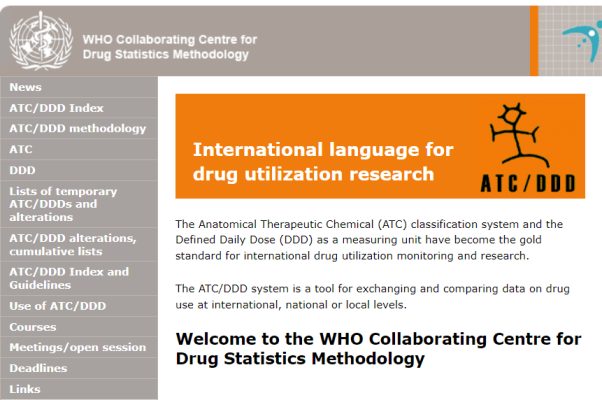On October 3, Dr Robert VanderStichele was representing UNICOM during a meeting organised by the WHO Collaborating Centre for Drug Statistics Methodology.
He provided important insights on the opportunities for revival of appreciation for the Anatomical Chemical Therapeutic classification (ATC) resulting from the implementation of ISO/CEN standards for global identification of medicinal products.
The implementation of the ISO/CEN Standards on the global identification of medicinal products (IDMP) is now well under way, under the impulse of the UNICOM project.
A global Working Group for the identification of medicinal products (GIDWG), bringing together the WHO Uppsala Monitoring Centre (UMC) for Pharmacovigilance, FDA, EMA, and other stakeholders, is elaborating rules for the creation of a global identification number for every national medicinal product. This global identifier, called pharmaceutical product identifier called PhPID, will be stored in a repository kept by the UMC. National medicinal product dictionaries could then link to that global repository and maintain
This provides perspectives to link this repository of global pharmaceutical product identifiers to the fifth level of the ATC classification and from there to a number of international pharmacotherapeutic classes.
That link will be extremely useful to express decision rules in international computerised applications to assure safety in prescribing. These rules are very often expressed technically with ATC codes, but need to be operationalised by a link to national drug codes.
The proposal was made to facilitate the creation of that link between ATC and IDMP by introducing the concept of prescribing by INN (international Non-proprietary name) by aggreating substance, and dose form information with simple ontologies.
This could be maintained as a collaborative resource with the help of the WHO Collaborating Centres and other stakeholders interested in the quality of decision support rules.


